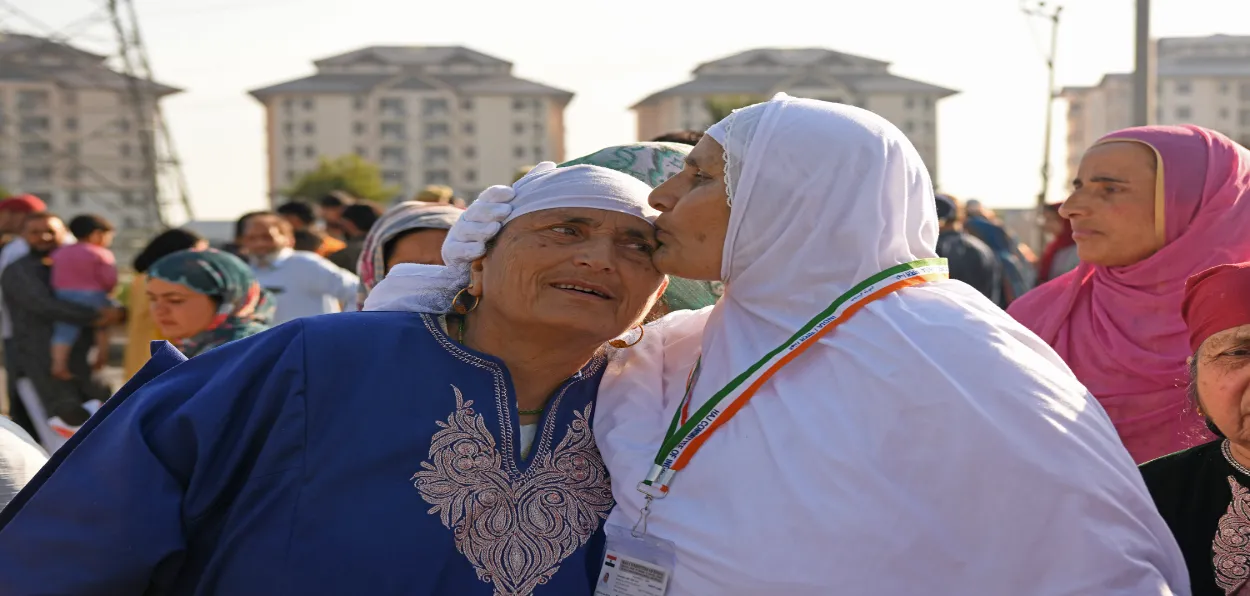
Eman Sakina
God has granted intellect to human beings. The intellect entails responsibility. The more intellect a person has the more he/she is responsible. In the absence of intelligence, accountability is also absent. Since their minds have not yet fully matured, young children are not held accountable. The mentally ill are not accountable because they are no longer capable of thinking.
Friday Musings
We all make mistakes, though, because that's just part of being human. Sometimes we make mistakes without thinking them through or intending them. However, there are moments when we consciously choose to sin and wrong other people.
It is said: “To err is human and to forgive is divine.” Both parts of this statement are very true. As human beings we are responsible, but we also make mistakes and we are constantly in need of forgiveness.
Islam speaks about two elements of forgiveness: a) God’s forgiveness; and b) Human forgiveness. We need both, because we do wrong in our relations to God as well as in our relations to each other.
The principles of forgiveness are woven throughout the Quran and Hadith, underscoring its significance in the life of a Muslim. Forgiveness in Islam is not merely a moral virtue but a divine attribute that believers are encouraged to emulate.
Divine Forgiveness
In Islam, Allah (God) is referred to as "Al-Ghafoor" (The All-Forgiving) and "Al-Rahim" (The Most Merciful), emphasizing the boundless and encompassing nature of divine forgiveness. The Quran frequently reminds believers of Allah's readiness to forgive those who repent sincerely. For instance, Surah Az-Zumar (39:53) states: "Say, 'O My servants who have transgressed against themselves [by sinning], do not despair of the mercy of Allah. Indeed, Allah forgives all sins. Indeed, it is He who is the Forgiving, the Merciful.'"
Human Forgiveness
Forgiveness among humans is also highly encouraged. Muslims are taught to forgive others to seek Allah’s forgiveness for their own sins. The Quran advises, "The reward of the evil is the evil thereof, but whosoever forgives and makes amends, his reward is upon Allah" (Surah Ash-Shura, 42:40). This verse highlights that forgiving others is not just a personal act of kindness but an act that brings divine reward.
Forgiveness in Practice
At a personal level, forgiveness helps in healing emotional wounds and alleviating the burden of anger and resentment. By letting go of grudges, individuals can achieve inner peace and improve their mental and emotional well-being. The Prophet Muhammad (peace be upon him) said, "Whoever does not show mercy will not be shown mercy" (Sahih Muslim). This Hadith underlines the importance of mercy and forgiveness in everyday interactions.
Social Level
On a societal level, forgiveness fosters harmony and reduces conflicts. By encouraging individuals to forgive, Islam aims to create a cohesive and compassionate community. The practice of forgiveness can prevent the escalation of disputes and promote reconciliation. This is particularly significant in maintaining familial and community bonds, which are central to Islamic social ethics.
Examples from the Prophet’s Life
The life of the Prophet Muhammad (peace be upon him) serves as a paramount example of forgiveness. One notable instance is his reaction to the people of Mecca after its conquest. Despite the years of persecution and hostility he faced, the Prophet chose to forgive the Meccans, declaring, "Go, you are free." This act of magnanimity not only exemplified the power of forgiveness but also paved the way for reconciliation and the spread of Islam.
While forgiveness is highly valued, it is not always easy to practice. One common misconception is that forgiving someone condones their wrongdoing. However, in Islam, forgiveness does not negate justice. It is possible to forgive while still seeking justice and rectification of wrongs. The balance between justice and forgiveness is a delicate one, and Islam guides maintaining this equilibrium.
ALSO READ: Prophet's life and Quran emphasise peace and harmony
Forgiveness in Islam is a multifaceted concept that encompasses divine grace, personal virtue, and social harmony. By encouraging believers to forgive, Islam not only promotes individual spiritual growth but also aims to build a just and compassionate society. The power of forgiveness lies in its ability to transform hearts, heal communities, and reflect the merciful nature of the Creator. As Muslims strive to embody the principles of forgiveness, they contribute to a more peaceful and just world, by the divine will.
